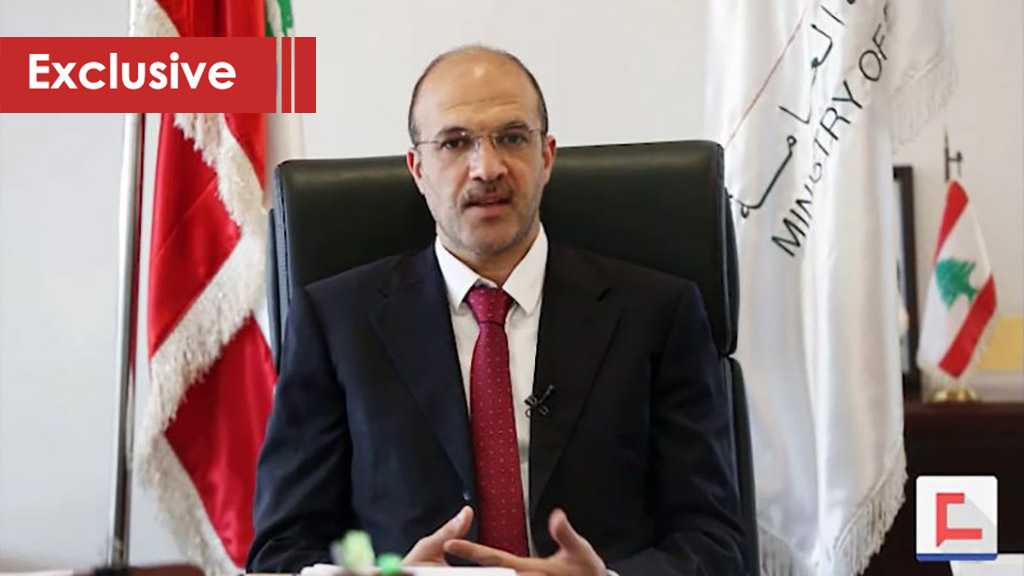
Lebanon’s Health Minister to Al-Ahed: Number of Coronavirus Cases Won’t Rise Due To Returning Expats

By Fatima Deeb Hamzeh
Lebanon’s Health Minister Hamad Hassan summed up the current stage of the country’s battle against the coronavirus by explaining that "we are always on alert, but we consider ourselves half way through.”
Speaking to Al-Ahed, Hassan said "all cases recorded to date can be accommodated by the Ministry of Public Health.”
“But we always prepare for a more difficult tomorrow given that the characteristics of this virus are unknown to any international medical sources or research laboratories. This is why we are working hard to extend the period of registering cases. At the same time, we are preparing additional resources for state-run hospitals and giving private hospitals sufficient time to get prepared in the event that – God forbid – we reach a situation where the staff and the health sector in all of Lebanon are required to intervene.”
I do not expect a hike in the number of cases following the return of the expatriates
Some are fearful that the number of coronavirus cases in Lebanon will increase significantly after the return of Lebanese expatriates. But the minister isn’t worried.
“According to the policy adopted by the Ministry of Public Health and by the Lebanese government’s ministerial committee, the return of expatriates will not affect the number of cases. However, we keep this possibility on the table. But it is a very unlikely possibility. We subject everyone to PCR testing. If they are in good health, we consider their results negative. They are required to sign a pledge promising to stay in quarantine for 14 days and not socialize with anyone. Hence, I do not expect a hike in the number of cases following the return of the expatriates,” he said.
10 state-run hospitals are able to cope with coronavirus cases
Regarding the ability of state-run hospitals in different Lebanese areas to deal with coronavirus patients, Hassan points out “that there are 10 state-run hospitals in governorate centers. These hospitals have been equipped to some extent, that is they can receive coronavirus cases and deal with referrals of possible infected cases. However, the equipment used for diagnosis and preventive treatment may be incomplete. In this case, we transfer the patient directly to Rafik Hariri University Hospital. These hospitals are equipped with the necessary medical equipment and nursing teams. There are also independent departments equipped to receive suspected cases or those that have acute respiratory symptoms. Therefore, they deal professionally and scientifically with such cases in order not to infect the medical team nor the patient receiving treatment for other diseases.”
The approach of international institutions portends a catastrophic pandemic
Asked about what the International Support Group can offer Lebanon in this field, the minister issues a stark warning.
“We thank them for their initiatives, but I expressed my surprise that many of the influential and friendly countries of Lebanon as well as many international health institutions did not implement any plans. Most of them are still within the framework of studying and making plans. This is wasting time and risking lives whether at the level of displaced Syrians, Palestinian refugee, or the Lebanese environment. This foretells, God forbid, a catastrophic pandemic that may pose a challenge to all international institutions and countries that are supporting Lebanon’s fight against the pandemic."
I have done two PCR tests so far and the results were negative
Hassan outlined the preventive measures he takes when he meets his family following a long day outside the house and working with people responsible for following up on the crisis.
“My work program starts at seven in the morning, and continues until about ten in the evening – follow-ups regarding logistics, the airport, the hotels, the international donor institutions, tenders, solicitations, qualifying teams for epidemiological monitoring, and preventive medicine. But during the weekend, I hesitate a lot and count to ten before going home. This requires me to take care of personal protective measures. I have to wear a mask at home, avoid kissing the children, and keep a safe distance between me and them. I have done two PCR tests so far, and the results came out negative. I test every two weeks or ten days. These are necessary preventive measures for myself, for those who I mix with in society, and for my family as well.”



